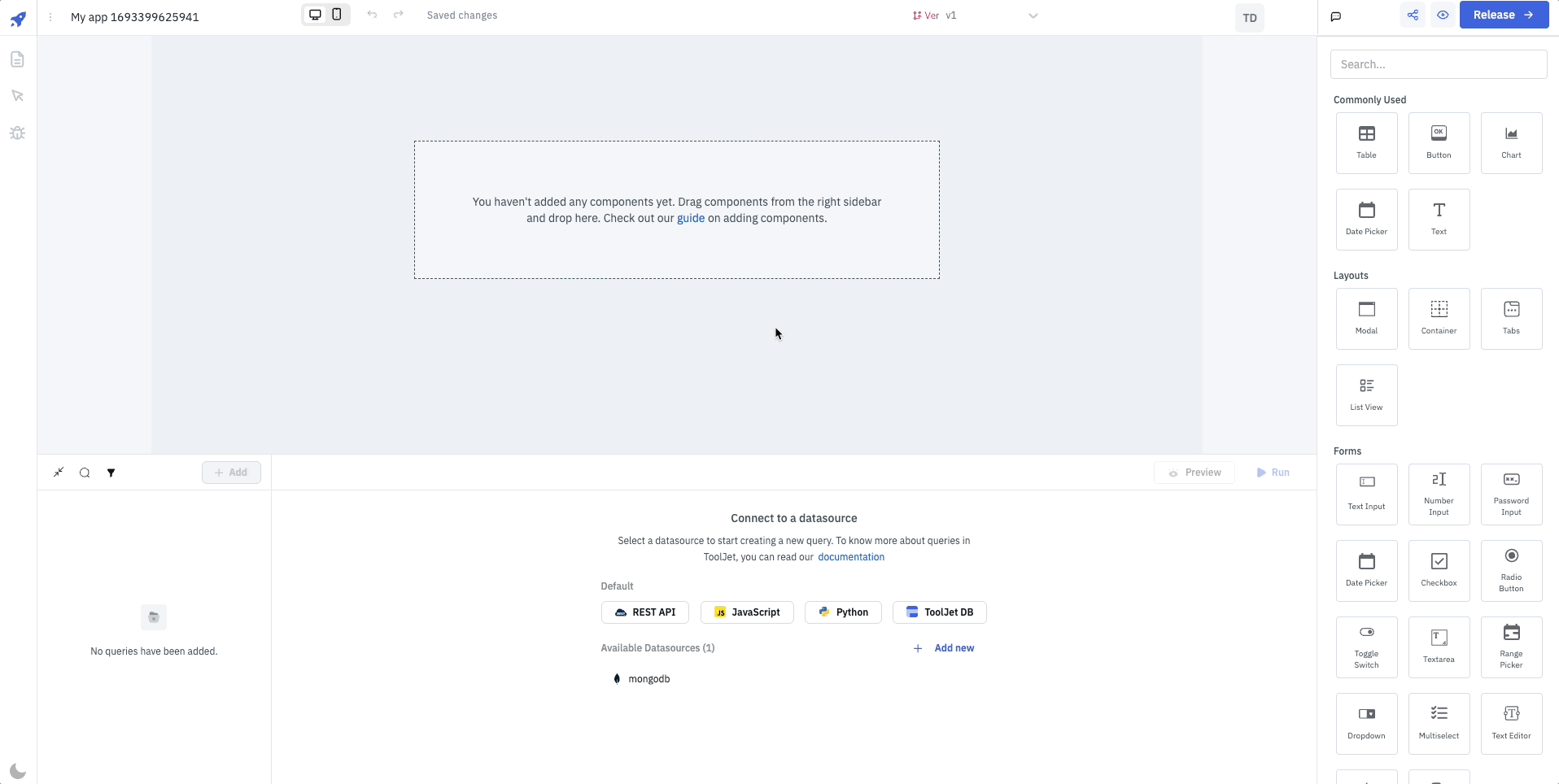Configuration
ToolJet can establish connections with any available REST API endpoint, allowing you to create queries and interact with external data sources seamlessly.
Setting up a REST API Data Source
To establish a connection with the REST API data source, you can either click on the + Add new Data source button located on the query panel or navigate to the Data Sources page through the ToolJet dashboard.

ToolJet requires the following to connect to a REST API data source:
Credentials
- Base URL: The base URL specifies the network address of the API service.
- Headers: Key-value pairs to include as headers with REST API requests.
- URL Parameters: Key-value pairs to include as URL parameters with REST API requests.
- Body: Key-value pairs to include as the body of the request.
- Cookies: Key-value pairs to include as cookies with REST API requests. These cookies will be sent with every query created using this data source instance.

Authentication
info
For a detailed explanation of the authentication types supported by REST API data sources, refer to the Authentication section.
ToolJet supports the following authentication types for REST API data sources:
- None: No authentication required.
- Basic: Requires Username and Password.
- Bearer: Requires a token, typically a JSON Web Token (JWT), to grant access.
- OAuth 2.0: Supports both Authorization Code and Client Credentials grant types. Required parameters vary based on the selected grant type and service provider.
- Access token URL
- Access token URL custom headers
- Client ID
- Client secret
- Scopes
- Custom query parameters
- Authorization URL
- Custom authentication parameters
- Client authentication method

Secure Sockets Layer (SSL)
- SSL Certificate: SSL certificate to use with REST API requests. Supported Types:
- None: No SSL certificate verification.
- CA Certificate: Requires a CA certificate to verify the server certificate.
- Client Certificate: Requires a client certificate, client key, and CA certificate to authenticate with the server.

info
To interact with SOAP APIs, refer to the SOAP API Documentation.